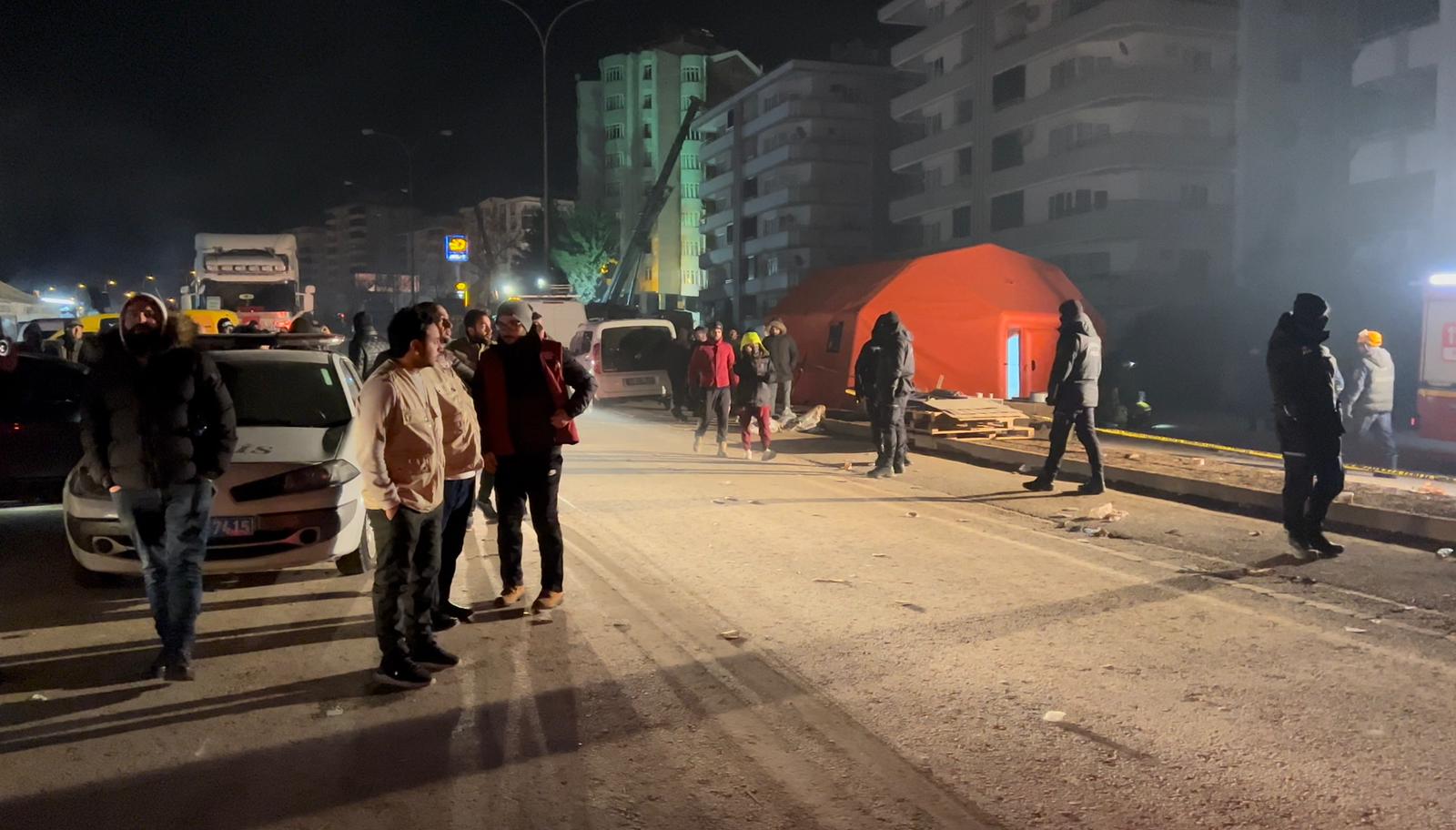Doha news is travelling with Qatari first responders and rescue workers as they deploy to earthquake-stricken Turkey.
(Gaziantep, Turkey) Thousands of residents in the Turkish city of Gaziantep have abandoned their towering apartments to opt for alternative shelters amid heightened fears of a third earthquake and more aftershocks.
The city, located 20 miles from the epicentre of the initial major quake, is filled with anxious residents and survivors traumatised by Monday’s incident. In the heart of the city, businesses are closed and instead have become shelters for those worried about collapsing buildings.
Just days earlier, Gaziantep boasted a buzzing street life but is now littered with scenes of destruction, disoriented residents and first responders that have spent more than 48 hours desperately and frantically fighting against a rapidly increasing death toll.
Categorised as one of the region’s worst natural disasters in decades, the 7.8 magnitude earthquake and 7.5 magnitude follow-up turned hundreds of buildings to rubble within minutes.
So far, the total number of deaths in both Turkey and neighbouring Syria has passed 12,000, though the World Health Organization has warned the number is likely to increase to 20,000 as rescue operations continue over the next few days.
In Gaziantep, thousands of first responders from around the world, including Qatar’s Lekhwiya forces, have been digging through tonnes of rubble in search for survivors trapped for more than 40 hours.
Roads within the city are scattered with debris and piles of bricks where homes once stood. As we drove through the city, residents were seen strolling in and out of shelters and hospitals looking for their loved ones.
A short drive away in the residential district of Batikent, a faint whistle is heard in the depths of the debris, prompting local Turkish first responders to hone in at the mission at hand. As the sun sets and temperatures drop below freezing, lights erect and the digging continues.
Despite the presence of thousands of responders across the city, the sheer scale of the disaster proves to be overwhelming for authorities. One source told Doha News of a lack of contact between foreign teams and local authorities, noting international rescue groups have essentially acted independently in their search and rescue missions since landing to help.
“It appears Turkish authorities are overwhelmed in terms of organisation,” the source said.
Such was the theme running through a local hospital where fatigued doctors attempted to carry out their duties. Inside, the sounds of wailing patients formed an unsettling melody to beeping machines in the backgrounds; signs of the disaster were imprinted on the faces of elderly women who were bruised with injuries; children who slept comfortably in their bed just days prior were now sprawled on the hospital floor.
“Things have gotten better, but I can’t confidently say what will happen today or tomorrow,” one hopeful individual, opting for anonymity, told Doha News.
A few miles away at the Yesilkent cemetery, such hope was absent.
Hundreds of mourners stood side by side to deliver the final prayers for the deceased. Due to the number of dead, one prayer was said for every ten victims of the disaster.
“I have had two deaths already, we don’t know what to do, God help us,” a grieving resident told Doha News at the site of the funeral.
Young, frightened children huddled around the feet of their parents as the imam recited verses of the holy Quran. Around them, grieving elders were carried out by their arms as they called out for answers.
“It’s like the world is ending, it’s really bad. Confirmed deaths are coming in around the clock,” a member of the Turkish ambulance service told Doha News at the funeral.
“This is a disaster,” he said.







